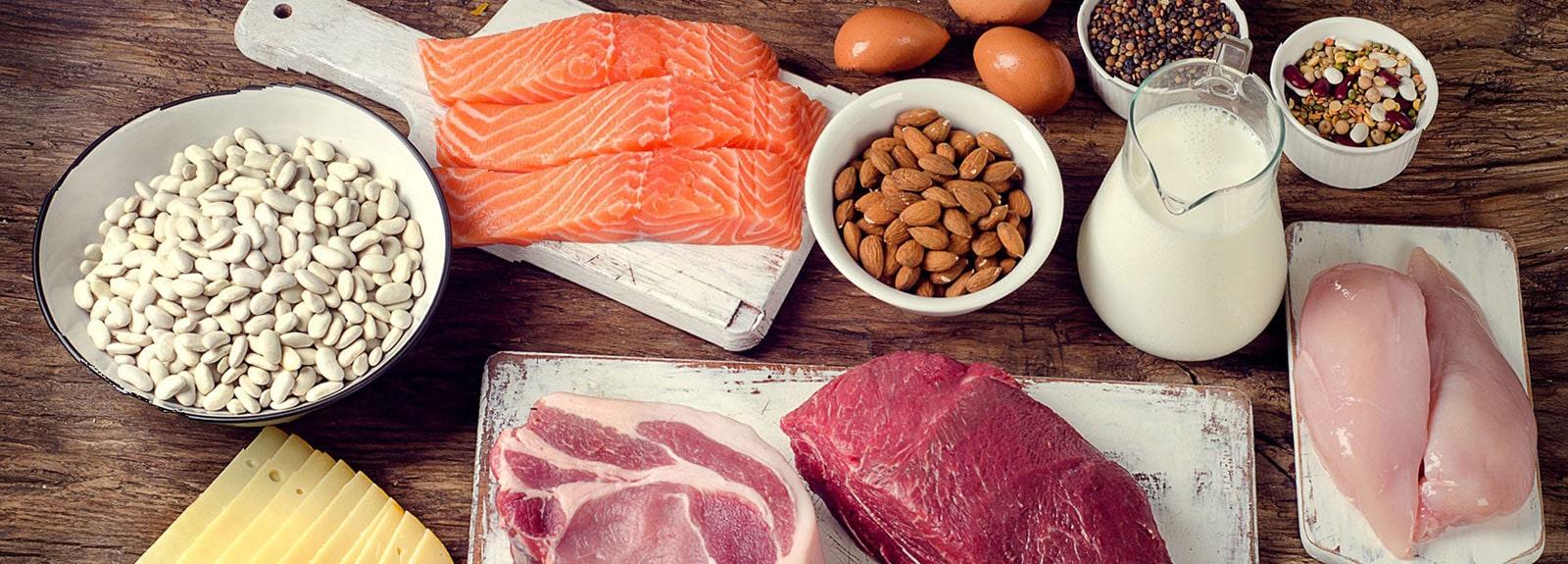

PROTEIN
Bone is made up of calcium, other minerals and protein, a nutrient that is necessary for building and repairing body tissues, including bones. Protein is an important nutrient for bone health and in the prevention of osteoporosis. It gives bone its strength and flexibility and is also the big component of muscles, which are, of course, crucial for mobility and in preventing falls.
Diets that include recommended amounts of protein are associated with greater bone mass and fewer fractures when calcium intake is adequate. Adults with limited protein intake are at high risk for bone loss and fractures.
Protein is an important nutrient for bone health and in the prevention of osteoporosis.
Too many seniors don’t eat enough protein or other important nutrients. Less protein means more fragile bones. Less protein also means weaker muscles, which leads to poor balance resulting in falls. For those with osteoporosis, an increase in falls can lead to fractures.
It is not unusual to find that people who break a bone also had a deficiency of protein in their diet over a period of several months just before their fracture. In most people who fracture, it is the inadequate consumption of protein that results in broken bones. Many studies show that women and seniors do not consume enough protein daily. In fact, in the elderly, protein deficiency may be an important indicator of weak bone health.
Protein includes beef, pork, poultry and fish with alternatives including beans, lentils, tofu, eggs, peanut (or other nut) butters, shelled nuts and seeds. Milk products are also a good source of protein and have the added advantage of being good sources of calcium. Visit the Recipe section for meal ideas containing protein and calcium for strong and healthy bones.
Visit the Recipe section for meal ideas containing protein and calcium for strong and healthy bones.